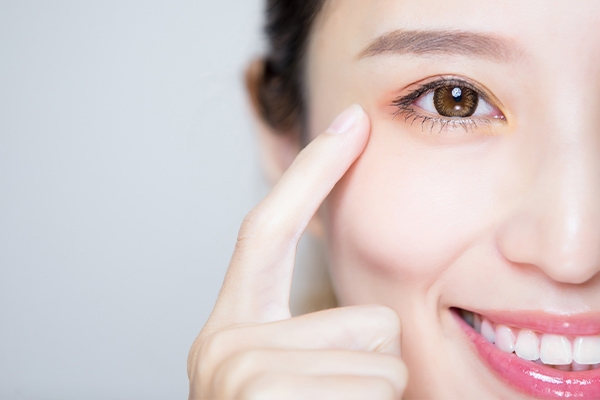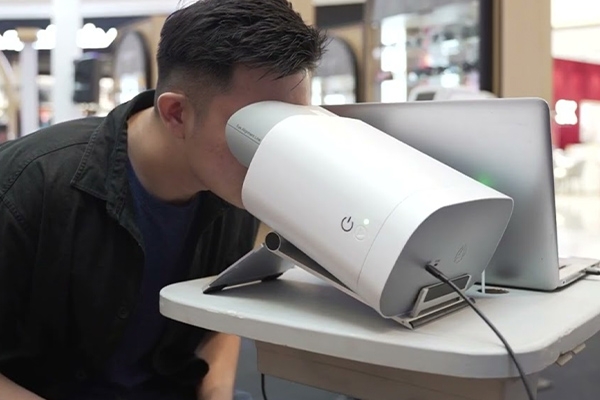Glaucoma: The Thief of Sight

Glaucoma can cause total blindness. Especially if not treated immediately. The issue is that glaucoma symptoms are only reported by sufferers when they are already in an advanced stage. What are the early detection steps to prevent it?
Glaucoma
Glaucoma is an eye disease that is generally caused by high pressure in the eye. If the pressure increases, the optic tissue in the eye is eroded. As a result, the eye may lose its vision function, leading to total blindness.
The two most common types of glaucoma are open-angle glaucoma and angle-closure glaucoma.
In the early stages, open-angle glaucoma does not show symptoms. Gradually, blind spots appear in side vision (peripheral). In the advanced stage, vision gradually decreases in one or both eyes.

Angle-closure glaucoma occurs when the angle of the anterior chamber narrows, leading to increased eye pressure. Patients usually complain of eye pain, red eyes, and blurred vision, which might lead to nausea and vomiting.
In addition to the two mentioned above, many more types of glaucoma are distinguished based on their causes. For example, cataracts, accidents, post-operative glaucoma, and diabetes mellitus (type 2) can cause glaucoma. Risk factors for glaucoma that should be monitored include:
- Having a family history of glaucoma
- Suffering from nearsightedness and high hyperopia
- Having degenerative diseases, such as diabetes mellitus, hypertension, and cardiovascular problems
- Having eye injuries at one stage of life
- Taking steroids in the long term
Glaucoma in children
Children under three can get glaucoma, just like adults. The ratio is 1:1,000. Although this case is rare, paying attention to your children's eye health is critical.
Glaucoma in children is generally primary congenital glaucoma (PCG) and can be detected at the age of 3-6 months to 3 years. PCG occurs due to nerve injury and is incurable. Therefore, early detection is critical to keeping children from experiencing permanent blindness as adults.
Symptoms of PCG include:
- White nodes appear in the black part of the eye.
- The dark area of the eye looks more prominent than usual.
- Reflexes often close the eyes, especially when exposed to bright light.
- Often complain of pain in the eyes when exposed to bright light.
- Eyes frequently moisten without explanation.
Children with glaucoma frequently require surgery to control eye pressure.
Examination

A glaucoma checkup is relatively simple and painless. The doctor drops medicine into the eye to dilate the pupil and then checks the eye for glaucoma or other eye problems.
Visual field tests are frequently used to detect central and peripheral vision dysfunction.
In addition to the above methods, eye examinations can also be performed using a device known as the Airdoc retinal artificial intelligence system (ARAS). This technology makes it easier to analyze glaucoma, other eye diseases, and eye-related health issues without the need to feel the discomfort of using eye drops.
In the form of a scanning camera, you only need to position both eyes according to the device's order. The artificial intelligence system will scan your retina and take a photo. The system will analyze photo shoot outcomes and provide you with a description.
Based on research, ARAS has a high accuracy, specifications, and negative predictive value for detecting fundus and retinal abnormalities. Meanwhile, the sensitivity and positive predictive value for diagnosing various problems differ.
You can get an examination with ARAS at the GWS Medika clinic.
Treatment
Glaucoma is a chronic disease. Early detection and proper treatment will significantly help recovery and prevent permanent blindness.
Glaucoma treatment aims to control eye pressure to limit the progression of damage to the optic nerve and tissue. Treatment can include medication, laser, and surgery. Make sure you carefully consider your doctor's advice.
If you are experiencing eye discomfort, such as acute and sudden pain in the head or eyes and sudden decreased vision, consult a doctor immediately. Seek medical attention immediately, either at the emergency room or an ophthalmologist.
^^
The eyes are the best way to enjoy the beauty of the world. Let's take care of our eye health until the end of our lives.



